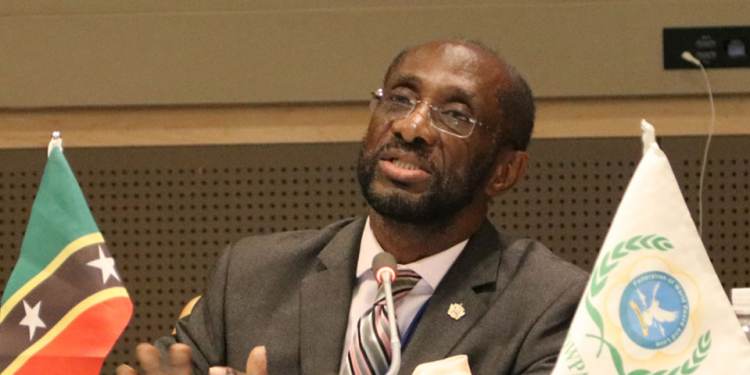The turmoil surrounding the Eastern Caribbean Central Bank (ECCB) and its Governor, Timothy Antoine, has escalated into an institutional crisis. What began as scrutiny over the construction of an official residence has evolved into a concerted effort to discredit Antoine’s leadership and, by extension, the integrity of the ECCB itself. Now, voices of reason are emerging to contest the political narrative, calling for an end to what appears to be an orchestrated attack on a man who has served with distinction.
Among them is Sam Condor, the former Deputy Prime Minister of St Kitts and Nevis, who has dismissed the controversy as little more than a “storm in a teacup.” Condor views the unfolding drama as an attempt to fabricate a scandal where none exists. He emphasises a crucial fact that is often overlooked in public debate: the project was approved not solely by Antoine, but by the ECCB’s highest governing body—the Monetary Council. If there was any objection to the project, the Council had every opportunity to intervene. St Vincent and the Grenadines’ Finance Minister, Camillo Gonsalves, was present, fully aware of all the details. Yet, no objections were raised at the time. So why now?
That question has become central to this debate. Why has Antoine been portrayed as the villain in a narrative where he was merely executing the directives of the Monetary Council? Condor’s stance is clear: this is not about governance—it concerns politics. The attack on Antoine appears to form part of a larger strategy to undermine the credibility of the ECCB and, perhaps, to facilitate political interference in the Bank’s future leadership.
If the campaign against Antoine were genuinely about transparency, why have confidential ECCB documents been leaked to the public? Why has the project management firm, Williams Architectural Services, become embroiled in the controversy, its internal reports unveiled in a bid to discredit not only Antoine but everyone involved in the project? The disclosure of sensitive financial documents raises significant concerns regarding the motivations behind this campaign. It is not merely Antoine’s credibility at stake, but the very foundation of institutional governance in the Eastern Caribbean.
Beyond politics, the stakes in this crisis are exceedingly high. The ECCB has long been a cornerstone of economic stability in the region, ensuring that the Eastern Caribbean dollar remains robust and is pegged at a stable rate of 2.7 EC dollars to one US dollar. Under Antoine’s leadership, the bank has introduced financial innovations and transitioned from foreign banking to regional banking ownership, pioneering digital currency with DCash. The ECCB is not merely a bank; it is a custodian of the region’s economic future. If its independence is compromised, the consequences will be significant—weakening investor confidence, increasing borrowing costs for governments, and undermining the region’s financial credibility on the global stage.
Condor’s intervention serves as a reminder of the importance of institutions. The Monetary Council has a duty to remain resolute against political grandstanding and to uphold the integrity of the ECCB. The attempt to discredit Antoine is not merely an attack on an individual; it is an assault on the very credibility of the institution that safeguards the financial stability of the Eastern Caribbean.
As this controversy progresses, the region confronts a choice. Will it protect its institutions, ensuring that central banking remains free from political interference?
Or will it allow political ambition to erode one of its most vital financial pillars? The decisions made now will shape the future of the ECCB, not only for this generation but for many to come.
Julian Rogers is following developments from his Caribbean home in Belize. Write to him at mycaribbean@gmail.com.



